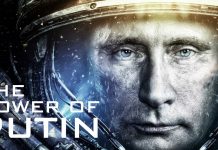In the thought-provoking documentary ‘Terminal Democracy,’ we are beckoned to contemplate a disconcerting question: What if democracy faced a silent erosion, with citizens either too distracted or disenchanted to engage in the political process? The film takes us on a journey through the scenic landscapes of the province of British Columbia, offering an intimate look at the present state of democracy. Through conversations with individuals deeply entrenched in the political milieu and a scrutiny of the genuine issues faced by British Columbia’s citizens, the documentary aims to dissect the multifaceted challenges that threaten the core principles of democratic governance.
At the heart of the exploration lies a fundamental concept – democracy as a form of government. Defined as a system where all eligible citizens possess an equal stake in decisions shaping their lives, democracy unfolds as a mechanism allowing participation either directly or through elected representatives. ‘Terminal Democracy’ prompts us to reflect on the broader societal conditions that either nurture or hinder the free and equitable exercise of political self-determination. The documentary ventures beyond the theoretical framework, delving into the intricate web of social, economic, and cultural factors influencing the democratic landscape in British Columbia. It serves as a lens through which we scrutinize the very essence of our political engagement and question the collective commitment to upholding democratic ideals.
As we traverse the provincial terrain, the film offers a platform for voices often drowned out in the political cacophony. Conversations with citizens, policymakers, and community leaders provide a nuanced understanding of the challenges faced by the people of British Columbia. The documentary becomes a conduit for the narratives of those directly impacted by the democratic process, shedding light on their perspectives and concerns. ‘Terminal Democracy’ unfolds as more than a mere exploration of political structures; it emerges as a dialogue, encouraging viewers to critically assess the health of democracy and consider the role each individual plays in either fortifying or undermining this foundational form of governance. It is a cinematic voyage that challenges us to confront the complexities of contemporary democracy and rekindle a sense of collective responsibility in preserving its integrity for future generations.

































